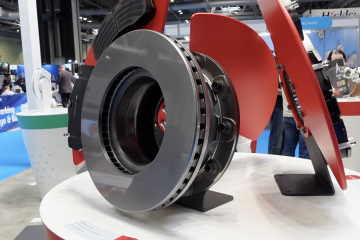Rising operational costs, taxes and utility bills are set to pose the biggest challenge to independent garages and franchised dealer workshops this year.
The Motor Ombudsman’s latest annual survey, which provides an on-the-ground ‘snapshot of sentiment’ of businesses in the UK’s service and repair sector, has revealed that these issues are set to pose the biggest challenge for 89% of vehicle repairers this year.
This is 14 percentage points higher than the figure seen for 2024, suggesting businesses may encounter greater financial strains in 2025 when compared to the previous 12 months.
These findings come at a time when consumer purse strings are already being tightened according to the poll, which will likely have greater urgency due to the energy price cap rising for the second consecutive period only days ago on 1st January, increasing costs. The research found that over half of repairers (56%) are expecting motorists to cut back on essential repairs in a bid to save money, with 48% saying similarly that they are forecasting vehicle owners to forgo ad hoc maintenance and routine maintenance, such as servicing, to cut running costs in the shorter term.
Increasing cost concerns
With this set to add to the pressure on customer footfall and the bottom lines of businesses in the coming 12 months, the impact of rising costs will likely be felt further with the price of parts to repair vehicles also on course for an increase, according to just over half (52%) of those polled, due to factors including ongoing component shortages and inflation.
This results in a corresponding challenge for repairers, with around four in ten (42%) of those questioned explaining that they will try to avoid passing on these heightened costs and expenses to consumers in 2025 as the cost of living remains front of mind for many.
With the service and repair sector relying on qualified technicians to sustain operations and meet customer demand, and a much-publicised skills shortage in this area of the automotive industry, close to half of repairers that were surveyed (48%) said that recruiting personnel would be a hurdle this year.
Furthermore, when questioned specifically in relation to staff challenges, the majority (55%), said that they had to raise pay cheques in 2024 to both attract and retain existing employees, allowing them to meet their own costs of living.
Issues with electric
With both new and used electric vehicles (EVs) increasing in popularity amongst consumers, and with fewer mechanical parts than petrol and diesel models, reducing the need for maintenance, around a fifth (21%) of repairers responded in the survey to say that battery-powered cars would provide less scope for additional revenue opportunities, dropping from 26% in last year’s survey, and the high of 32% seen in the same study about expectations ahead of 2023, as more businesses look to diversify income streams.
Adverse trading environments can often bring new opportunities for businesses, and despite a backdrop of rising costs and skills shortages, just under half of respondents (42%) explained that they still plan to invest in the refurbishment of their premises, with a slightly smaller proportion (39%) stating an intention remains to grow their workforce.
In addition, during 2025, nearly a third (29%) of respondents explained that they are looking to review their opening hours to offer an improved work-life balance to staff, whilst around a quarter (24%) said that they plan to grow their pool of key suppliers to help drive down possible delays to the repair of customer vehicles.
Positive viewpoint
“Our latest survey of businesses in the service and repair sector shows an interesting juxtaposition of rising costs to operate on the one hand, and less revenue due to consumers delaying repairs and maintenance on the other, thereby setting the scene for a more challenging trading environment,” commented Bill Fennell, Chief Ombudsman and Managing Director of The Motor Ombudsman.
“This of course may be amplified by continued difficulties recruiting qualified staff to meet customer demand, meaning some significant headwinds persist this year for the nation’s garages and workshops.
“However, amongst the possible hurdles set to be faced by businesses this year, there are positives to take away from the study in that there is still an appetite to invest to provide an even better customer experience. As garages weather this latest ‘storm’, we will continue to support and shine the spotlight on our accredited businesses so that even more consumers are aware of the benefits of using a repairer that is committed to the high standards laid down by our Motor Industry Code of Practice for Service and Repair.”
To view the businesses that are accredited to The Motor Ombudsman’s Service and Repair Code, visit www.TheMotorOmbudsman.org/Garage-Finder.



